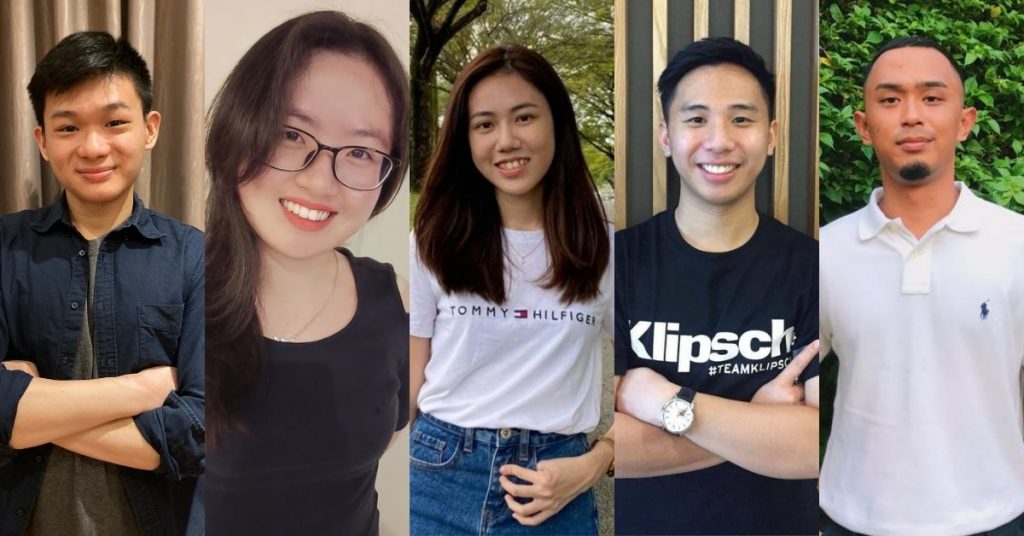One of the ongoing issues we’ve seen with the pandemic since last year is the access to laptops and internet connection among students in the B40 group.
National initiatives like the Budget 2021 and Syed Saddiq’s botak challenge have brought this issue further into the spotlight, signalling the urgency of it at times like these.
However, John, Wei Sheng, Qi Jun, Ashley, and Syakir didn’t want to sit at home and wait for these big players alone to make changes for B40 students.
Hence, the quintet came together in a 12-week programme under the McKinsey Youth Leadership Academy to make Connect.ED happen.
Crowdfunding And Crowdsourcing To Get To Their Goals
Connect.ED is a social enterprise that aims to equip B40 students with digital devices such as laptops to facilitate online learning.
To make that happen, they came up with three steps:
- Collect and refurbish second-hand devices from privileged schools, corporates, and willing donors.
- Crowdsource funds and digital experts to help them source new devices and create digital programmes.
- Channel the devices collected and the help gathered to equip students with what they need to learn.
As of now, they’re working with Teach For Malaysia fellows and AIESEC to identify their B40 student beneficiaries.
The Process Of Collecting And Refurbishing These Laptops
Donors who are interested in donating these digital devices can first contact them through their device donation form or on social media.
“So far, we have been mostly receiving laptops, sometimes accompanied by chargers,” Ashley shared with Vulcan Post.
“We then assess the specifications for e-learning suitability, and hand them over to the student technician for repairs and refurbishing.”
Currently, they’re working closely with an experienced student technician, who has been repairing and refurbishing laptops and desktops for some time.
For B40 students who qualify to receive one of these laptops, they can expect to use them for at least several more years.

Crowdsourcing laptops has its fair share of shortcomings, though. John shared that they sometimes receive devices that are non-repairable or are unsuitable for e-learning.
“These laptops either lack webcams or sufficiently strong processors, and we base the decision of whether or not to repair and refurbish the device on our technician’s assessment as well,” Ashley said.
That being said, instead of just disposing these old laptops, the team would salvage some of their usable components to sell them online.
While the inventory turnover for these components might be slow, they hope this alternative stream of income may provide them enough funds to repair and refurbish more laptops to donate.
As for sourcing donors, they’ve mostly just been reaching out to the general public for device donations so far.

Splitting The Profits 70:30
“From the beginning, we wanted Connect.ED to be a social enterprise rather than a pure non-profit. The idea was that we wanted to create a sustainable business model that would empower us to make lasting impact without being reliant on donations and grants,” John said.
Connect.ED has been operating on a 70:30 profit split so far, with 70% of profits going directly towards the refurbishing of devices for the students and the remaining 30% directed to sustaining their social enterprise.
One of the ways they’ve been raising funds for this programme is by selling student-designed merchandise, like tote bags made by their student beneficiaries.
The students are tasked with creating designs which represent their personal dreams. Then, Connect.ED would digitalise those designs, print them onto the merchandise, and sell them.

Helping Their Students Upskill Once They’ve Received Laptops
Besides providing these students with access to a decent laptop, Connect.ED aims to create digital programmes that can help their students upskill.
In doing so, they’ve partnered with AIESEC in Sunway University to place one of their student beneficiaries in their Speak Up! Project.
Speak Up! is a youth-led initiative that aims to to enhance English proficiency and STEM literacy among students while providing them with opportunities to develop themselves.
“This collaboration will give one of our students (Azhar) the opportunity to leverage on the laptop we were able to equip him with, so that he can learn game development skills and actually develop his own video game,” John shared with Vulcan Post.
As of now, John and the team will be taking a hiatus in February to focus on their studies and work to recharge before getting back to Connect.ED.
Featured Image Credit: John Peter Lee, Project Lead for Connect.ED













